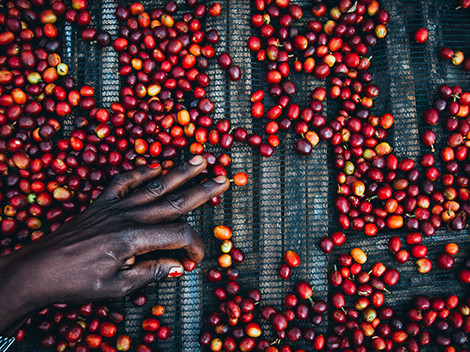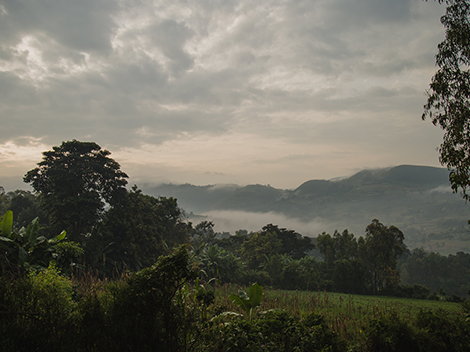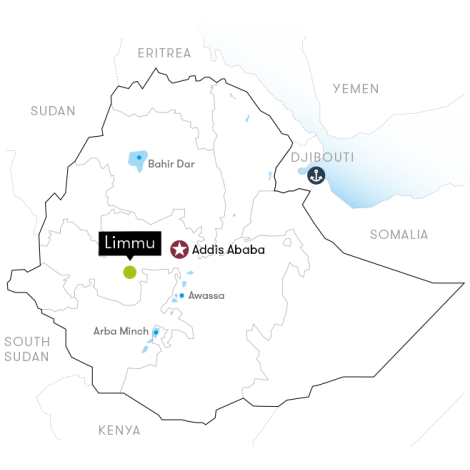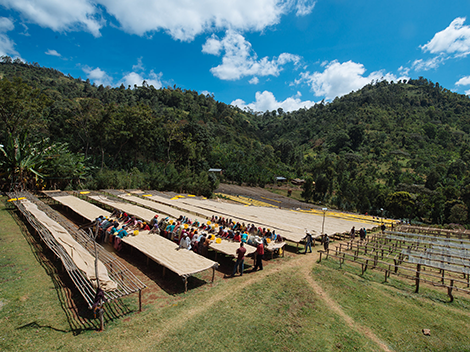Ethiopia Limmu G1 Organic RFA Natural - Sheka
About This Coffee


History of Coffee in Ethiopia
Coffee is ancient in Ethiopia, but coffee farming is not. By the end of the 9th Century coffee was actively being cultivated in Ethiopia as food, but probably not as a beverage. It was the Arab world that developed brewing. Even as coffee became an export for Ethiopia in the late 1800’s, Ethiopian coffee was the result of gathering rather than agricultural practices. A hundred years ago, plantations, mostly in Harar, were still the exception, while “Kaffa” coffee from the southwest was still harvested wild. In 1935, William Ukers wrote: “Wild coffee is also known as Kaffa coffee, from one of the districts where it grows most abundantly in a state of nature. The trees grow in such profusion that the possible supply, at a minimum of labor in gathering, is practically unlimited. It is said that in south-western Abyssinia there are immense forests of it that have never been encroached upon except at the outskirts.”


Growing Coffee in Ethiopia
As the birthplace of coffee, Ethiopia is home to more species of coffee plants than any place on earth, much of it still growing wild, and much of it still undiscovered. All Ethiopian coffee is Arabica and at least 150 varieties are commercially cultivated. Traditionally, these have simply been labelled as “heirloom varietals”; however, this is changing as the Jimma Agricultural Research Center works to identify species. Although there are a few estates in Ethiopia, 95% of coffee is grown by small land holders in a wide variety of environments, including “coffee forests” where coffee grows wild and is harvested by the local people. All specialty grade Ethiopian Coffee is grown above 4,000 feet and most above 6,000. In the highlands of Sidamo and Yirgacheffe, coffee can grow above 7,000 feet.
- Region Sheka zone
- Farm Name Masha Farm
- Processing Natural/Dry Processed
- Bag Type Grain Pro / Ecotact
- Plant Species Arabica
- Variety Ethiopia Heirloom
- On Sale No
- Top Lot No
- Status Spot
- Certifications Rainforest Alliance Certified (IP), Organic certified
- Coffee Grade ETH CA NAT LIMM G1
- CTRM Contract Number P609356-2
- Country of Origin Ethiopia






